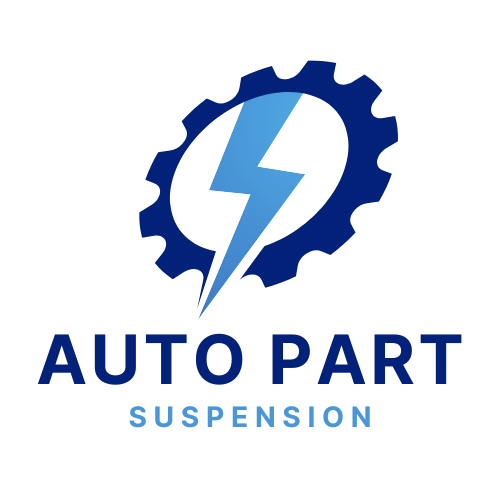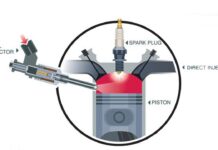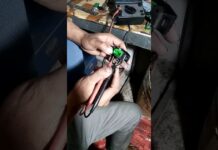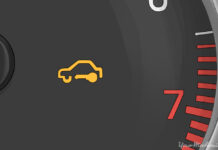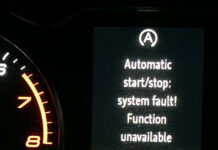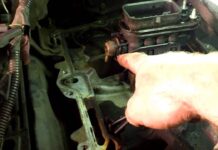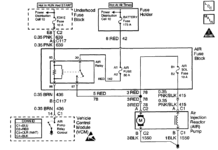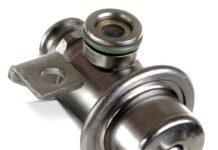What is an engine fire? What are the signs of an engine misfire What causes an engine misfire?
What is Engine Misfire?
Understanding the workings of an engine is essential before you can explain why it misfired.
Four-stroke internal combustion engines that are properly functioning perform a number of tasks correctly. They do this at the correct time to burn fuel and produce power. The pistons are moving down and the intake valves will open. A delicate mixture of fuel and air enters the combustion chamber. The valves close and the pistons move up to compress the mixture. Spark plugs ignite the mixture and increase the pressure of the cylinder. This high pressure forces the piston down quickly, while simultaneously turning the crankshaft. Finally, the exhaust valves are opened and expel the burned gases from the piston. This cycle is repeated as the engine turns.
Misfire; It occurs when the operational stability of an engine is affected and the ignition in its combustion chamber is not working properly. This is usually caused by mechanical failures in the components that are required to ignite the fuel, air, or ignition, or the cylinder itself. Misfires can be caused by incorrect timing or failure of one or more cylinders to complete all necessary steps. The mixture may not ignite or burn properly if the air-fuel ratio does not match the correct value. This is commonly known as knocking.
What are the Signs of an Engine Misfire?
It can be difficult to diagnose the cause of engine problems. However, there are some signs that will help you identify it. Misfires are often intermittent and can sometimes be caused by an engine load, fuel type, environment or the amount of accelerator pressed. The engine may stop running if one of its cylinders begins to misfire. However, abnormal conditions could occur.
Misfiring engines can cause engine damage over time. It is important to not ignore signs and symptoms. As the engine works harder to correct the misfired cylinders, fuel consumption and exhaust emissions will increase. To diagnose the problem, the first step is to check the computer for codes.
You may suspect that your engine is having problems if you observe any of the following symptoms.
1. Engine Loss of Power/Hesitation/Stumbling / Vibration
If one or more cylinders are misfired, the engine’s power will be significantly reduced. It may also cause the engine to slow down during acceleration. There may be a slight jolting, misfire, or stuttering.
If the misfire is caused by a mechanical problem, engine vibrations can occur. It is common to hear vibrations at idle, and this frequency increases with engine speed (RPM).
2. Abnormal Sounds from the Engine
Kickbacks can be caused by engine misfires. These noises include popping and jolting. Engine kickback is caused by unburned fuel being ejected from exhaust valves and ignited within the exhaust system.
A four-cylinder vehicle with four cylinders will not start if one cylinder is not functioning. The engine’s sound will change dramatically.
3. Strange Scents
Sometimes, fluids may leak from the walls of cylinders. This can lead to oil and coolant odors.
4. On – Engine Malfunction Light
OBD2 systems can be fitted to vehicles made after 1995. If any sensor detects readings that are not expected, the check engine lamp will turn on and an error code will be written in the engine control unit (ECU).
When a misfire takes place in the cylinders, a fault code is set between P0300 to P0314. The ECU will display a code that can be read with a diagnostic instrument to identify the cause and cylinder malfunction.
5. Stalling and Hard Engine Start
Misfires can cause an engine to stall and start hard in most cases. Air conditioning, lighting, heated seats, and other accessories can all trigger this. Running accessories can also trigger this effect.
6. Exhaust Smokes Too Much
If you see smoke coming from the exhaust, it is likely that there is something wrong. Dingy and dark exhaust fumes can indicate an engine with a high amount of fuel and carbon buildup. The engine is burning oil if the exhaust fumes appear in shades of blue. A leaky cylinder head gasket could also be indicated by white exhaust fumes.
No matter the color of the smoke from the exhaust, anything that gets into the combustion chamber other than fuel and air affects the combustion process and causes misfires.
What causes an engine misfire?
The ignition coil is the most common cause of misfires. Some cars have separate ignition coils for each sparkplug. Others have one loop that supplies the voltage to each sparkplug via a sparkplug cable. Older cars may have an ignition coil, a distributor, or both. The misfiring piston can be detected by unplugging one of the rings.
Faulty spark plugs are the second leading cause of misfires. Spark plugs are responsible for incandescent the mixture of air and fuel injected into the cylinders. Spark plugs are limited in their lifespan and can become worn over time. Spark plugs can be replaced easily and are inexpensive so make sure to check them regularly.
Misfires can also be caused by vacuum leaks in the intake hoses or manifold. Check the vacuum hoses and intake manifold for any hissing noises.
Misfires can also be caused by low fuel pressure, a defective fuel pressure regulator, a fuel pumps, or clogged fuel filters. Low fuel pressure can cause poor mixture in your engine which can lead to misfires in all of the cylinders.
Faulty injectors are another problem. But, injectors can fail on new vehicles, so it’s not unusual for them to fail. You may need to inspect the injectors if you are still unable to conclude from other options.
The engine’s components may have been damaged if you have checked all the possibilities. Incorrect combustion of fuel and under-compression can be caused by damaged internal components. Low compression can also be caused by a defective timing belt.
Sometimes, a bad mixture of fuel and air can cause misfires. A faulty mixture of air-fuel and fuel can lead to misfires in many sensors such as the MAF sensor or oxygen (O2) sensor.
